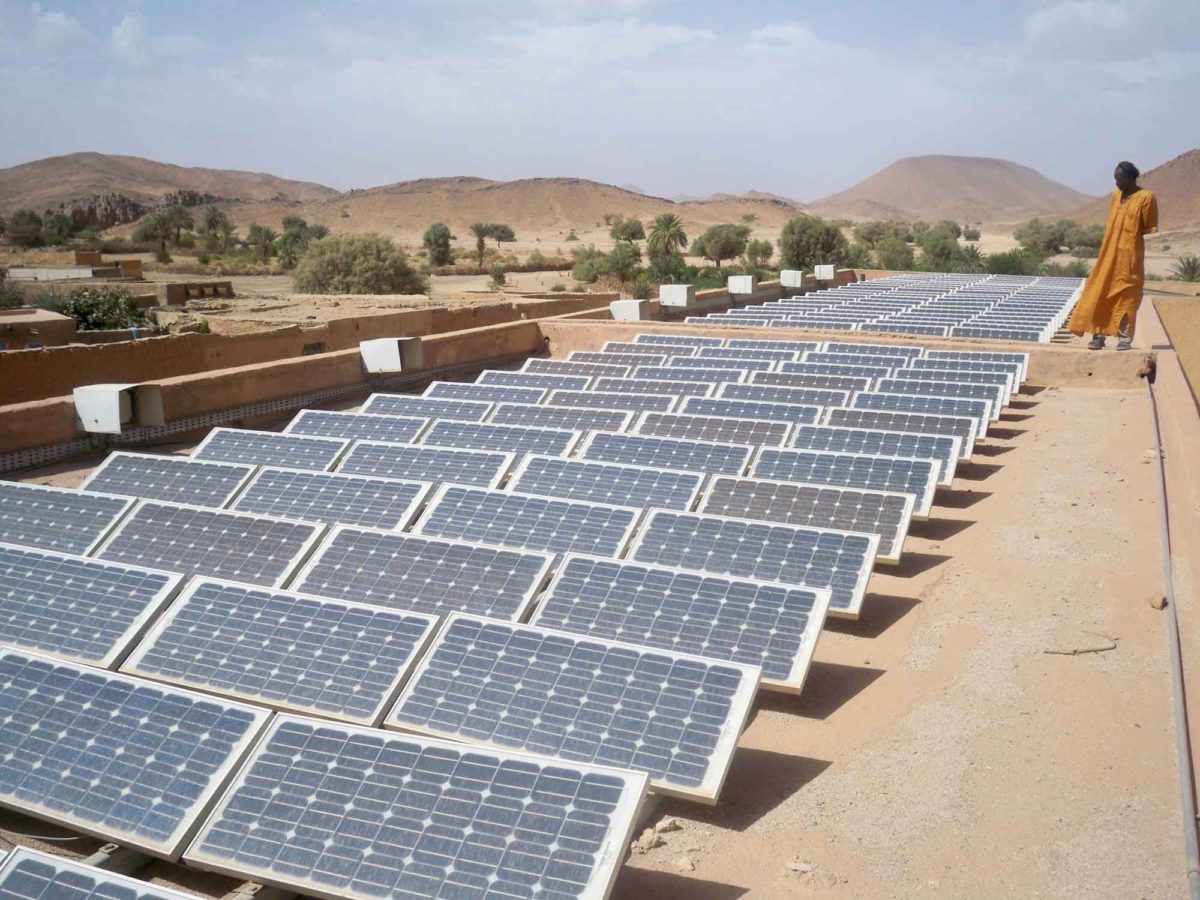The announcement of a 4 GW tender for large-scale solar made by the Algerian government in March had raised hopes that the PV industry of the North African market was finally set to flourish and, at the same time, had caused mixed reactions within the local and global solar sectors due to the domestic content requirements embedded in the drafted tender rules.
After the announcement, the tender was initially said to be launched by the end of March, and then in early April Algeria’s government published the decree implementing the 4 GW solar auction in the country’s official journal. The RfP for the tender, however, has never been published. According to local press agency APS, the newly appointed minister of environment and renewable energy Fatma Zohra Zerouat has now revealed that an ad hoc committee for the tender will be created, and that its final review will be published together with her new action plan for the development of renewable energies, without providing a specific time frame.
The Algerian government appointed Mustapha Guitouni, the former CEO of Sonelgaz (National Society for Electricity and Gas), which is in charge of electricity and natural gas distribution in Algeria, as the country’s new Minister of Energy in late May, and at the same time created the new Ministry of Environment and Renewable Energies in an effort to push forward its plan for solar and renewables. After being appointed as a minister, however, Zohra Zerouat made it clear that the publication of the tender could not be precipitous, and that several issues still needed to be addressed.
Commenting on this further delay, Adel Baba-Aissa, director of U.K. company Renewable Energy Partner that is active in the Algerian market, told pv magazine: “After the events of the last few months in Algeria, with the elections leading to a new government coming in and replacing the minister of energy and establishing a new renewable energy ministry, the dust is slowly settling down. Although this has caused some delays. The first signs are encouraging. The creation of a dedicated ministry of renewable energy will help boost the deployment of the Algerian renewable energy program. Equally, the latest announcement by Minister Zerouati setting up this commission will hopefully help iron out some of the concerns expressed by investors on the proposed terms of the 4GW tender.”
One of the main controversial aspects of the tender, as anticipated, were its rules for domestic content requirements that compels developers to construct PV component manufacturing facilities in the country.
Doubts were raised by local renewable energy experts and entrepreneurs on the feasibility of the tender. Some critics had pointed out that local enterprises could be excluded from future projects and that the size of each phase, 1.35 GW, was too big to guarantee equal access to all market participants. Others, however, claimed that the new auction scheme was well designed and that it solved most of the issues created by the unapplied FIT scheme.
In October 2014, Sonelgaz and the Algerian government revealed plans to deploy 4 GW of solar power for the first time. The long-awaited final Request for Proposal for the first 1.35 GW-phase of the 4 GW initiative was expected to be published last spring.
According to this original plan, Sonelgaz’s unit CEEG SpA was in charge for overseeing the tender, and the implementation of the plan. Selected projects had to be owned and developed by special purpose companies, which were also responsible for financing, EPC works, grid-connection and the sale of power. These vehicles had to be owned 51% by a domestic investor and 49% by an international partner. Algerian government-owned oil company Sonatrach had to hold a 40% stake in all of these companies, while Sonelgaz and other public or private Algerian companies were expected to hold the remaining 11%. For Algerian private investors, the participation in the capital of each company had not to exceed 6%. Financing for each project must be provided 30% with own funds and 70% with bank loans.
The tender was planned to enable the construction of several large-scale PV plants in the region of Hautes Plaines (High Plains), which is located in the northern part of the country, and also in southern Algeria.
This content is protected by copyright and may not be reused. If you want to cooperate with us and would like to reuse some of our content, please contact: editors@pv-magazine.com.




2 comments
By submitting this form you agree to pv magazine using your data for the purposes of publishing your comment.
Your personal data will only be disclosed or otherwise transmitted to third parties for the purposes of spam filtering or if this is necessary for technical maintenance of the website. Any other transfer to third parties will not take place unless this is justified on the basis of applicable data protection regulations or if pv magazine is legally obliged to do so.
You may revoke this consent at any time with effect for the future, in which case your personal data will be deleted immediately. Otherwise, your data will be deleted if pv magazine has processed your request or the purpose of data storage is fulfilled.
Further information on data privacy can be found in our Data Protection Policy.